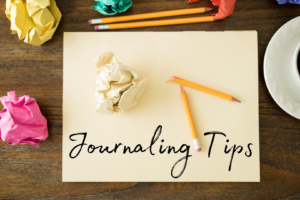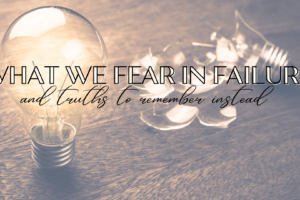Emotional awareness is vital to having healthy and whole relationships with others and with God. We cannot be known by others if we don’t know ourselves, and knowing self requires being aware of how you think, how you feel, what you need. It is awareness of your body and your values and personality. We must be aware.
Awareness is the first step in effective management of our emotions, and it is one of the most important things we need to cultivate in relationships with others.
Awareness involves slowing down, listening with curiosity, and naming our experience. To be aware, we must sit with ourselves long enough to know our heart, our mind, and our body. If we avoid our pain or uncomfortable emotions, we will never be able to move through them and come out on the other side.
How do we become aware?
In hard situations, can we be brave and pay “compassionate attention” to ourselves to see what we are feeling, what we need, and what we are thinking?
First, we need to slow down. Slowing down, putting away the phones and calendars and distractions for a moment is the only way to self-knowledge, to God-knowledge—it’s the only way to freedom. And isn’t that what we’re all longing for? Adam S. McHugh says that “listening requires being,” sitting with your feelings and the voices in your head like you would sit with your friend in the living room.
I cannot emphasize enough the value of solitude and silence in this process. Filling our spaces, our minds, with noise feels like it protects us from having to face our demons and be honest with ourselves about what is wrong, about how bad our relationships have gotten. But this cycle only leads to emptiness in our relationships. “Solitude is an opportunity to interrupt this cycle by turning off the noise and stimulation of our lives,” Ruth Haley Barton explains, “so that we can hear our loneliness and our longing calling us deeper into the only relationship that can satisfy our longing.”
Second, we listen.
We listen to our body, our mind, the situation around us. We listen to another person if they are involved. We listen to the Spirit within us.
And then lastly, we get curious. We are kind to ourselves, and we pay attention with a curious attitude, not a shaming attitude. A curious posture is where learning begins.
We can ask ourselves the following questions:
What is going on right now?
What am I feel? (Name the specific emotion.)
When did I begin feeling this way?
When do I feel it the most?
What usually triggers it?
Where do I feel it in my body?
What is happening in my body when I feel this way?
What thoughts am I thinking when I feel this way?
Why is this feeling or situation uncomfortable for me?
What could my emotion be telling me?
What is the possible purpose of this emotion?
How do I normally react when I feel this way?
What do I need right now?
What do my people need to know about how I’m doing right now?
As you spend time thinking through these questions, answer as honestly as you can. Awareness is a gentle and kind approach to understand the situation, yourself, and what you need in a moment. This week, write these questions down, and spend some time sitting with each question. Be honest and name what you are experiencing.
Though this process of emotional awareness isn’t some magic sauce, it is essential to being emotionally healthy, which in turn, helps you be more relationally healthy. You can better manage your uncomfortable emotions and communicate about them in effective ways.






Recent Comments